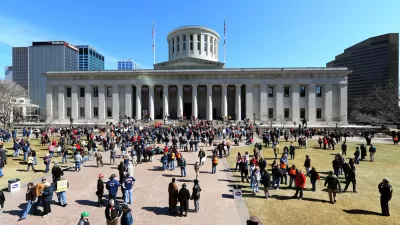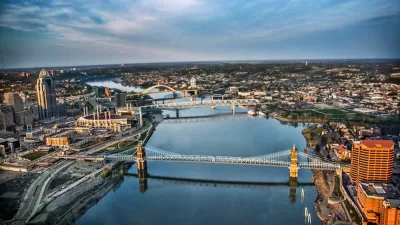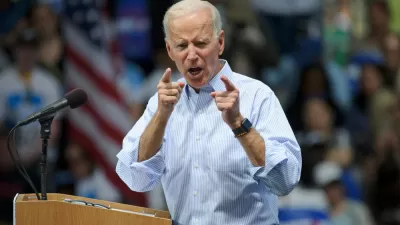Colorado's roads and highways are in poor repair—the state of transportation was even called a 'quiet crisis' ten years ago. The problems persist, as does the state's lack of funding to fix the problem.

"A decade ago, then-[Colorado] Gov. Bill Ritter assembled a bipartisan commission to study an issue of growing concern to state leaders: transportation," writes Brian Eason. "But a decade later, Colorado spends even less than it did then."
"The state faces $9 billion in unfunded highway projects over the next decade, on top of unmet needs at the local level," explains Eason. "The state’s roads have deteriorated from a B rating in 2007 to a C- today. At current maintenance levels, the pavement’s on a trajectory to get worse."
Planetizen correspondent Irvin Dawid reported earlier in May about the Colorado State Legislature's failure to reach bipartisan support for transportation funding. The end of the legislative session produced only incremental improvement. At the end of the legislative session, when state lawmakers secured $1.9 billion for transportation projects, funding generated by mortgaging state buildings. That $1.9 billion represents the largest infusion of road money since 2009, when the state last increased vehicle fees. A special legislative session suggested by Gov. John Hickenlooper to find a long-term fix has since been called off, and state legislators are not expected to produce a major transportation bill in the 2018 election year.
Which brings us to the headlining point of Eason's reporting. Pressure is building from outside the capital, according to Eason, for a ballot initiative that would bypass the legislature entirely. There is even a "Fix Our Damn Roads" initiative, which states its agenda bluntly.

Alabama: Trump Terminates Settlements for Black Communities Harmed By Raw Sewage
Trump deemed the landmark civil rights agreement “illegal DEI and environmental justice policy.”

Study: Maui’s Plan to Convert Vacation Rentals to Long-Term Housing Could Cause Nearly $1 Billion Economic Loss
The plan would reduce visitor accommodation by 25% resulting in 1,900 jobs lost.

Planetizen Federal Action Tracker
A weekly monitor of how Trump’s orders and actions are impacting planners and planning in America.

Waymo Gets Permission to Map SF’s Market Street
If allowed to operate on the traffic-restricted street, Waymo’s autonomous taxis would have a leg up over ride-hailing competitors — and counter the city’s efforts to grow bike and pedestrian on the thoroughfare.

Parklet Symposium Highlights the Success of Shared Spaces
Parklets got a boost during the Covid-19 pandemic, when the concept was translated to outdoor dining programs that offered restaurants a lifeline during the shutdown.

Federal Homelessness Agency Places Entire Staff on Leave
The U.S. Interagency Council on Homelessness is the only federal agency dedicated to preventing and ending homelessness.
Urban Design for Planners 1: Software Tools
This six-course series explores essential urban design concepts using open source software and equips planners with the tools they need to participate fully in the urban design process.
Planning for Universal Design
Learn the tools for implementing Universal Design in planning regulations.
Caltrans
Smith Gee Studio
Institute for Housing and Urban Development Studies (IHS)
City of Grandview
Harvard GSD Executive Education
Toledo-Lucas County Plan Commissions
Salt Lake City
NYU Wagner Graduate School of Public Service





























